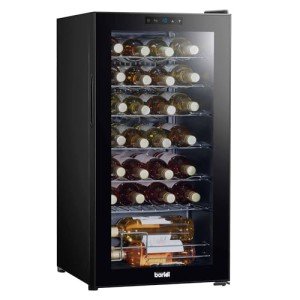Beware Of This Common Mistake With Your Buy Fridge
A Comprehensive Guide to Buying a Fridge: Tips and Considerations
Buying a refrigerator is a considerable decision for any family. The ideal fridge not only keeps your food fresh but likewise boosts the aesthetic appeal of your cooking area. With a wide variety of alternatives available in the market, potential purchasers face the challenge of finding a refrigerator that matches their requirements and fits their budget plan. This post provides important insights into the necessary factors to consider when buying a fridge, categorizes the various types offered, and responds to some frequently asked questions.
Kinds of Refrigerators
Before diving into the buying process, it's important to understand the different types of refrigerators available. Each type serves an unique purpose and includes its own set of features. Here's a fast overview:
Type
Description
Ideal For
Top Freezer
A conventional design with the freezer compartment on top.
Budget-conscious consumers.
Bottom Freezer
Refrigerator above, freezer at the bottom.
Those who frequently access fresh food.
Side-by-Side
Two vertical areas, one for the fridge, one for the freezer.
Large families with diverse storage requirements.
French Door
Different compartments for fridge and freezer with large doors.
Trendy kitchen areas and avid cooks.
Compact
Smaller sized and portable, suitable for minimal spaces.
Dormitories or studio apartments.
Smart Fridges
Equipped with Wi-Fi and touch screens for sophisticated features.
Tech-savvy users seeking convenience.
Understanding these numerous types can help purchasers identify what matches their way of life and kitchen area layout best.
Secret Considerations When Buying a Fridge
1. Size and Space
The size of the refrigerator is among the important elements to consider. Measure the offered area in your cooking area where the fridge will live. Keep in mind:
- Depth, Width, and Height: Ensure that the fridge complements your cooking area's general layout.
- Door Swing: Check that the door can open easily without obstruction.
- Capacity Needs: Consider how much food you typically store and choose a fridge with an appropriate cubic foot capacity.
2. Energy Efficiency
When buying a brand-new fridge, try to find energy-efficient models. Energy Star-rated refrigerators take in less electrical power, which can substantially reduce energy costs. Factors to assess consist of:
- Energy Guide Label: This supplies a quote of the yearly energy consumption.
- Inverter Technology: Helps maintain temperature while taking in less power.
3. Features and Technology
Refrigerators feature a myriad of functions and technological developments. Picking the ideal combination can significantly improve convenience:
- Temperature Control: Look for designs that provide accurate temperature level settings for various compartments.
- Smart Technology: Wi-Fi connection can use signals, recipe suggestions, and inventory checks.
- Ice and Water Dispenser: Consider whether you want an in-door water and ice dispenser to conserve area and enhance accessibility.
4. Design and style
The aesthetic appeal of your refrigerator can match the total kitchen area style. Think about the following styles:
- Finish Choices: Stainless steel, matte black, and traditional white are popular finishes.
- Handle Design: Choose a handle design that matches your cooking area's décor and is simple to open.
5. Price and Brand Reliability
While there are many budget plan alternatives available, buying a credible brand name frequently translates to reliability and resilience. Consider the following:
- Warranty: A strong service warranty can protect against flaws and failures.
- Client Reviews: Research user feedback to determine efficiency and service quality.
Buying Tips
- Research: Spend time reading reviews and contrasts before deciding.
- Sales and Promotions: Look out for sales during vacations or special occasions to improve deals.
- In-store Experience: Visit local device stores to see the designs in individual and ask questions to experienced staff.
FAQs about Buying a Fridge
1. For how long can I expect my refrigerator to last?
Typically, a refrigerator lasts in between 10 to 20 years, depending upon the brand name and upkeep. Routine upkeep can extend its lifespan.
2. What should I do if my refrigerator isn't cooling sufficiently?
Start by inspecting the temperature settings, guarantee the door seals are intact, and keep the coils tidy. If issues continue, consult a professional technician.
3. Are smart fridges worth the investment?
Smart fridges can be advantageous for tech-savvy users and those who value convenience. Functions like stock management and remote gain access to can conserve time and reduce food waste.
4. How do I properly maintain my refrigerator?
- Clean the interior routinely to remove spills and odors.
- Thaw if you come across frost accumulation.
- Examine the door seals to ensure they are tidy and practical.
5. What is the best refrigerator brand name?
There is no one-size-fits-all response. Nevertheless, brand names like Whirlpool, Samsung, LG, and Frigidaire are often appreciated for quality and client service.
Eventually, buying a refrigerator involves a lot more than simply selecting a random model off the rack. By putting in Zane Barker to assess your needs, examining type choices, understanding vital functions, and thinking about style aesthetic appeals, you can make an informed choice that will serve your family well for years to come. With the right choice, your refrigerator will be a trusted buddy in your everyday kitchen operations.
